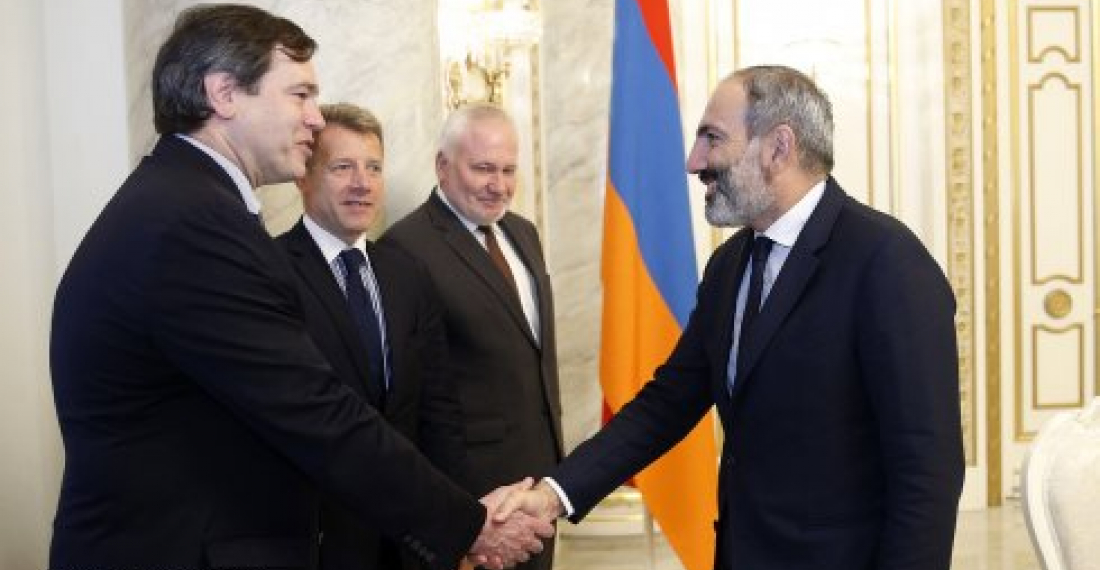The Armenian Prime Minister Nikol Pashinyan has held his first meeting with the three co-chairmen of the OSCE Minsk Process mandated to facilitate the peaceful resolution of the Nagorno-Karabakh conflict.
This was the first meeting of the Armenian leader with the diplomats since assuming power as Prime Minister following popular street protests last month. Welcoming the diplomatic envoys at his office in Yerevan on Wednesday (13 June), Pashinyan highlighted their important role in the negotiation process for a peaceful settlement of the Nagorno-Karabakh conflict, and said he was sure that effective cooperation will be established, a government sources said. In turn, the diplomats assured the prime minister that they will put all necessary efforts to secure a peaceful resolution to the Karabakh conflict.
In the meeting the committments by the sides in the conflict to a peaceful settlement, and the importance of implementing decisions taken earlier in Vienna, St. Petersburg and Geneva were highlighted.
The diplomats briefed the Prime Minister on their planned work schedule.
Armenian government souces said that Pashinyan reaffirmed Armenia's readiness to continue working with the OSCE Minsk group co-Chairmen for the settlement of the conflict.
The two sides discussed the steps to be taken to create the right conditions and atmosphere for the negotiation process to move forward, and reflected on the situation in the conflict zone.
source: commonspace.eu with agencies.
photo: Armenian Prime Minister Nikol Pashinyan welcoming the three co-Chairmen of the OSCE Minsk process Andrew Schofer of the United States, Stéphane Visconti of France and Igor Popov of Russia in Yerevan on 13 May 2018 (picture courtesy of the press service of the prime minister of Armenia)







